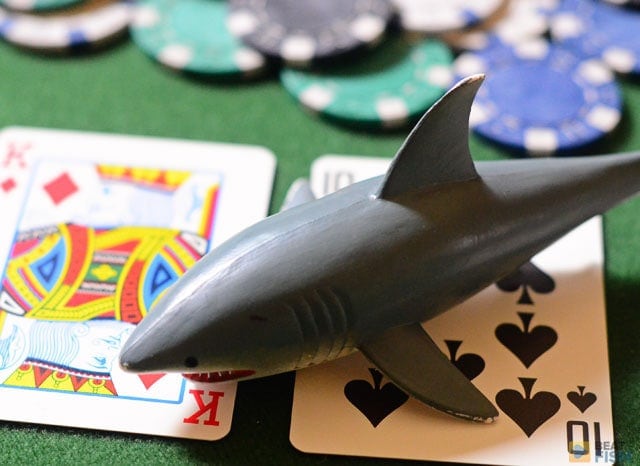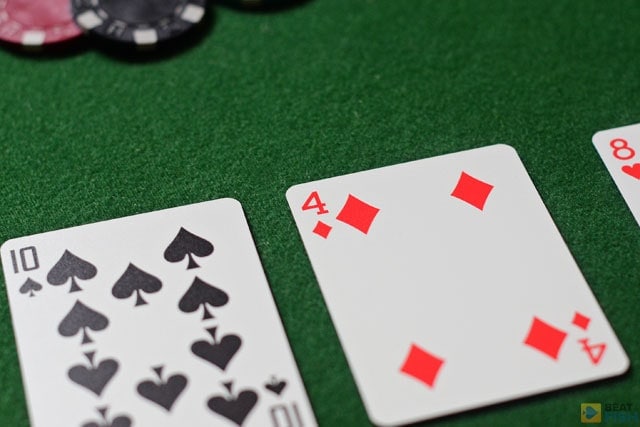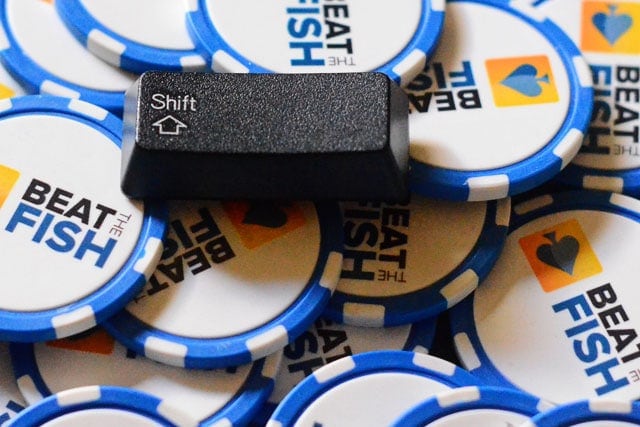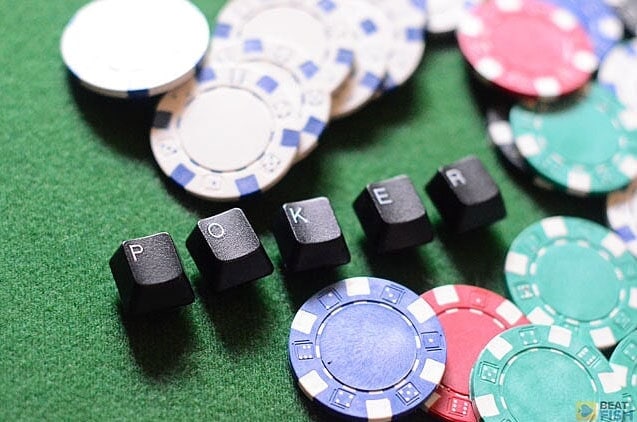The Basic Rules of Omaha Poker

The rules for Omaha are basically a variation of Texas Hold’em.
In the game of Omaha, you can only use two hole cards from the four cards you’re dealt to make up your hand together with the community cards.
If you’re new to Omaha or looking to learn some basic concepts and strategies to improve your Omaha poker game you should keep reading.
Table of Contents
Basic Rules of Omaha Poker
Pre-flop
In Omaha Poker two people must post forced bets which are called the small blind and the big blind. To ensure a fair game, all players take turns posting blinds and they are passed around in a clockwise direction.
After the blinds are posted, each player is dealt four cards face down, starting with the person to the immediate left of the dealer. These cards are called your hole cards.
Once each participating player has their four hole cards there is a pre-flop round of betting.
The player in the Under The Gun position, who is directly to the left of the player in the big blind position, will act first and the action goes around the table until the big blind has acted.
Players can call the amount equal to the big blind if they wish to stay in the hand or raise any amount between the size of the big blind or more depending on the betting structure or you can simply fold your hand.

You do not have the option to check the pre-flop betting round unless you are in the big blind and then you only have the option to check if it’s an unraised pot.
The Flop
After the pre-flop betting round is over, it’s time to deal the “flop”. Three cards are dealt face up in the center of the table for everyone to share. Hence, they are called community cards or board cards.
At this point every player has four cards face down in their hand and three cards that are visible on the table that everyone uses to make up their hand. Now a second round of betting takes place.
Players have the option to check or bet if no one else has bet before it’s their turn to act. If someone has already bet then you can call, raise, or fold.
The Turn
When the betting is over on the flop another card is placed face up in the center of the table. This round is called the “turn” and there is a third round of betting.
You have the same betting options as you had on the flop. You can check or bet if no one else has bet in the same round of betting and call, fold, or raise the pot if someone has already bet.
The River
Finally a fifth and final community card is dealt face up in the middle of the table. This last round is called the “river” and the fifth the last round of betting takes place.
This card will ultimately determine the real strength of each participating player’s hands. You have the same options that you had on the flop and turn streets. If all bets and raises are called, there is a showdown and the best hand scoops the pot.

Omaha Poker Strategy
Although Omaha poker has similar rules to Texas Hold’em there are notable differences to the strategies used to be successful in this game. Since you’re dealt four cards instead of two it’s easier to make hands. In Omaha Hi Poker, big hands like straights and flushes are common hands.
If you come from a Hold’em school of thought that says two pair hands are the nuts and use the same logic when playing Omaha poker games you will go broke quickly.
Even low sets can be losing hands when there has been a lot of action. You can be up against higher sets and never going to be a huge favorite on the flop against big drawing hands.
Adjustments from Hold’em
You really need to adjust to what is considered the nuts when playing Omaha. Big pocket pairs are a good hand but nowhere near as valuable in Omaha.
A critical mistake that novice Omaha poker players make is overvaluing their big pocket pair hands, especially when they contain Aces.
Even pocket Aces, which is the best starting hand in Hold’em, are never going to be a huge favorite in PLO (Pot-Limit Omaha) when all the chips go in the middle.
In Omaha it is crucial that you evaluate the real strength of your hand after you’ve seen the flop, which means it becomes critical to play starting hands that have great post flop potential. More than anything else, Omaha is a post flop game that requires careful consideration to starting hand requirements.

Starting hands that are good to play are connected and suited cards because these hands can flop big hands and big nutty draws.
One of the biggest advantages of playing connected and suited starting hand combinations is that you can hit straights and be redrawing to a better flush, In other words, even if your opponent has the exact same hand when the chips go in the middle, you’ll be “freerolling” on the turn/river and don’t stand the lose the pot.
Aim for the nuts in Omaha
It is especially important to be drawing to the nuts. You don’t want to be drawing to the sucker end of a straight or the fourth best flush as you’re unlikely to have the best hand if you are up against tight players.
With four hole cards in each player’s hand there is a good chance that someone else is chasing to a better hand, especially when there are multiple people involved in the pot.
Also, just like Texas Hold’em, playing position well is just as important in Omaha poker games. Position helps you to win more money when you have the best hand and lose the minimum when you expect to be beat.






